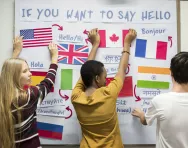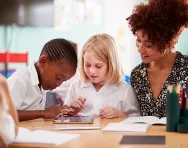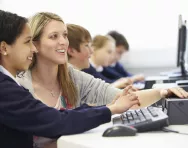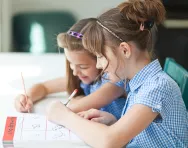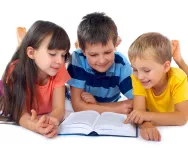Important update from TheSchoolRun
For the past 13 years, TheSchoolRun has been run by a small team of mums working from home, dedicated to providing quality educational resources to primary school parents. Unfortunately, rising supplier costs and falling revenue have made it impossible for us to continue operating, and we’ve had to make the difficult decision to close. The good news: We’ve arranged for another educational provider to take over many of our resources. These will be hosted on a new portal, where the content will be updated and expanded to support your child’s learning.
What this means for subscribers:
- Your subscription is still active, and for now, you can keep using the website as normal — just log in with your usual details to access all our articles and resources*.
- In a few months, all resources will move to the new portal. You’ll continue to have access there until your subscription ends. We’ll send you full details nearer the time.
- As a thank you for your support, we’ll also be sending you 16 primary school eBooks (worth £108.84) to download and keep.
A few changes to be aware of:
- The Learning Journey weekly email has ended, but your child’s plan will still be updated on your dashboard each Monday. Just log in to see the recommended worksheets.
- The 11+ weekly emails have now ended. We sent you all the remaining emails in the series at the end of March — please check your inbox (and spam folder) if you haven’t seen them. You can also follow the full programme here: 11+ Learning Journey.
If you have any questions, please contact us at [email protected]. Thank you for being part of our journey it’s been a privilege to support your family’s learning.
*If you need to reset your password, it will still work as usual. Please check your spam folder if the reset email doesn’t appear in your inbox.
The International Primary Curriculum (IPC) explained

In England, maintained schools (also known as state schools) have to follow the National Curriculum. But other schools – including state academies and independent (private) schools – have more flexibility in what they teach.
Although these schools still have to provide a ‘broad and balanced curriculum’ that includes English, maths, science and RE, they can choose to follow a different curriculum.
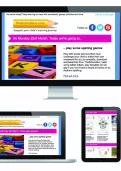
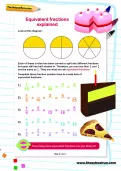
Start a unique learning programme!
- Weekly programme for each school year
- Worksheets sent direct to your inbox
- Keeps your child's learning on track
Some schools opt to use the International Primary Curriculum (IPC) instead of, or alongside, the National Curriculum; this is also used in many international schools overseas, in over 90 countries worldwide.
The IPC is a comprehensive, thematic, creative curriculum for children aged five to 11.
What do children learn under the IPC?
The IPC covers many of the same subjects as the primary school National Curriculum. Using the IPC approach, children develop knowledge, skills and understanding in each subject area:
- Language arts (including English)
- Maths
- Science
- ICT and computing
- Technology
- History
- Geography
- Art
- Music
- PE
- Society
IPC units of learning
The curriculum subjects are taught through individual ‘Units of Learning’, which are topic-based, and include engaging themes like Animals, Active Planet, Buildings, Young Entrepreneurs, and Who Am I?
The aim of this approach is for primary school children to understand how the different curriculum areas interlink, and for them to make connections across subjects to form a stronger understanding of the learning: so, for example, the Active Planets unit could include geography, history, science, languages and more.
There are three ‘mileposts’ of learning, for children aged five to seven, seven to nine, and nine to 11. These roughly correspond to Key Stage 1 (Years 1 and 2), lower Key Stage 2 (Years 3 and 4), and upper Key Stage 2 (Years 5 and 6).
Each milepost contains a number of units of learning developed especially for that age range. Every unit also includes an international aspect, to help children develop a sense of ‘international mindedness.’
Personal goals
Through its units of learning, the IPC also aims to help children develop character traits that will equip them for life now, through education and in the future.
These eight personal goals are:
- Enquiry
- Resilience
- Morality
- Communication
- Thoughtfulness
- Cooperation
- Respect
- Adaptability
How are children assessed under the IPC?
There are no formal exams for children following the IPC – although children who follow the curriculum in academies in England still have to take SATs in Year 2 (due to be made non-statutory, so schools will be able to choose whether to adminster them or not, by 2023) and Year 6.
Instead, the IPC focuses on schools developing their own ways of assessing children’s knowledge, skills and understanding. These may be informal, such as assessed classwork (e.g. ‘Can you draw a map of your hometown for a friend who’s visiting from abroad?’) or quizzes, or formal, such as end-of-unit tests.
Through the success criteria (or ‘rubrics’), teachers can identify the learning stage of each skill in each subject at each age phase. Teachers will assess whether a child is:
- Beginning
- Developing
- Mastering
There’s also a focus on self-assessment and peer assessment. Children are often asked to assess their knowledge using the following statements:
- ‘I’m getting used to it’
- ‘I’m getting better’
- ‘I’m really getting it!’
What do schools think of the IPC?
Over 1,700 schools across the world deliver the IPC.
Schools have commented:
‘You can easily get tied up in English and Maths, especially in upper Key Stage 2 where there’s a lot of emphasis on Year 6 children leaving with the right age-related expectations. We don’t drop the foundation subjects, and where we can, we make those links with the core subjects. The IPC keeps our lives more exciting because we go on trips with the students and join in with their learning.’
Green Dragon Primary School, Brentford, UK
‘When the teachers sit down with the parents and open their child's portfolio, they are impressed. The same happens when parents come to student-led conferences, or to IPC exit points [the end of a milepost], where they can see the results of their learning, and are able to hear their child talk about their learning. We’ve had many parents leave amazed, with their mouth agape!’
Keystone Academy, Beijing, China
‘For children, there is joy attached to learning. There's excitement all the time; when there's a new IPC unit, during entrance and exit points, when working towards mastering a skill and when children are working collaboratively to achieve something. Learning becomes such a shared experience. It’s been a shared experience for the staff too.’
Franconian International School, Erlangen, Germany
